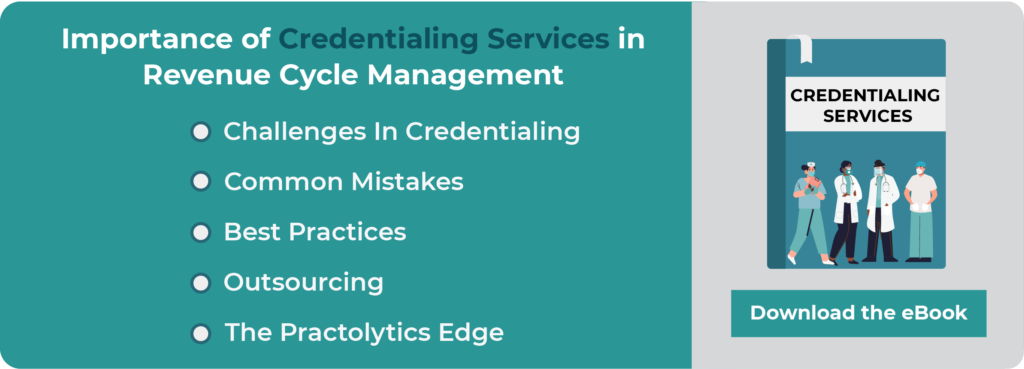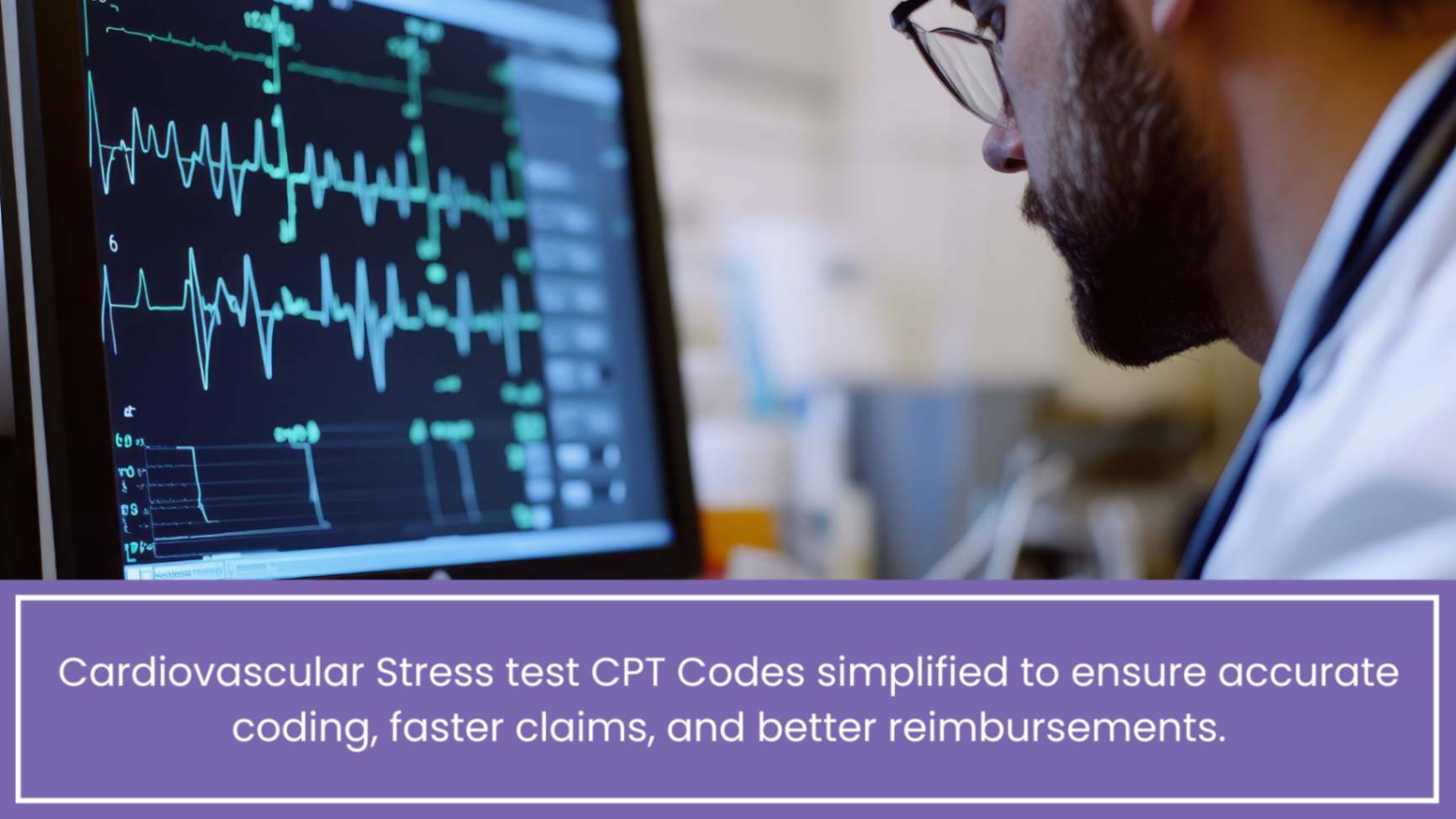Importance of Credentialing Services for Anesthesiologists
Importance of credentialing services for Anesthesiologists goes far beyond paperwork—it’s the foundation of a successful practice. Delays and denials can cost you revenue and compliance risks, making professional support essential. Practolytics streamlines the process, ensures timely enrollments, and accelerates reimbursements. No more chasing documents or endless calls with payers. With credentialing handled the right way, you can focus on patient care while turning a mandatory requirement into a smart revenue strategy.
Table of Contents
Why Credentialing Services Matter More Than Ever for Today’s Anesthesiologists?
Credentialing isn’t just paperwork. It’s not just a formality. For anesthesiologists across the United States, credentialing is the lifeline that connects them to hospitals, insurance providers, and ultimately, patients. It’s the process that verifies they are who they say they are — qualified, competent, and cleared to practice safely. But here’s the catch: in a healthcare system as complex and fragmented as the U.S., credentialing is often more of a maze than a straight path. And for anesthesiologists, the stakes are especially high.
Let’s talk about why this matters and why outsourcing medical credentialing services — to experts like Practolytics — isn’t just helpful, it’s essential.
Credentialing: More Than Just a License
If you think credentialing is just about having a medical license, think again. Credentialing involves:
- Primary source verification of medical education, residency, and fellowship.
- Board certification and ongoing maintenance.
- Work history and peer references.
- Background checks, including malpractice history and criminal records.
- State-specific licensure and DEA registration.
- Hospital privileges.
- Payer enrollment and CAQH attestation.
And here’s the kicker — this isn’t a one-time process. It must be updated regularly to keep everything active and compliant.
Why It Hits Anesthesiologists Hard?
Unlike primary care physicians who often work in fixed locations, anesthesiologists are more mobile. They may be credentialed at multiple facilities, from ambulatory surgery centers (ASCs) to large hospitals. Every new facility? New credentialing. Every payer contract? More paperwork.
Credentialing delays can keep anesthesiologists from:
- Starting a new job or contract.
- Billing for services rendered.
- Gaining access to OR schedules.
- Participating in insurance networks.
And in many cases, if you’re not credentialed, you don’t get paid — even if the work is already done.
How the Credentialing Process Slows Down Anesthesiologists and Hurts Revenue?
|
Process Step |
Time Requirement |
Common Pain Points |
|
CAQH Profile Setup & Attestation |
5–10 hours initially |
Manual data entry takes hours. Small errors can delay progress. Frequent re-attestation is needed just to stay active. It’s a never-ending admin chore. |
|
Payer Enrollment |
60–180 days |
Longest wait time. Even when forms are perfect, payers take months. One missing document can reset the clock. You’re stuck in limbo and can’t bill. |
|
Hospital Privileging |
30–120 days |
Every facility has different rules. Lots of duplicate paperwork. You often have to provide the same info multiple times with zero standardization. |
|
Re-Credentialing |
Every 2–3 years |
Just when you think you’re done, it’s time to do it again. Deadlines sneak up, and missing them can mean removal from payer networks or hospital rosters. |
|
Licensing (State/DEA) |
Varies by state |
Each state has its own rules, fees, and timelines. Some take weeks or months. Keeping DEA and state licenses aligned is a full-time task in itself. |
Why Credentialing Still Feels Like the 90s — and Why That Matters?
Let’s be honest: the credentialing system in the U.S. is not built for efficiency. Each payer has its own requirements. Each hospital uses its own forms. There’s no universal checklist — and while CAQH has tried to streamline some of it, most of the process is still stuck in the past.
Credentialing teams often deal with outdated systems. Fax machines are still in use. Repeated calls to follow up with credentialing departments are the norm, not the exception. And when you’re trying to credential for multiple facilities or in multiple states, the complexity compounds quickly.
So what’s at stake? Revenue. Reputation. Readiness to work. And for small anesthesia groups or independent providers, these delays can be catastrophic.
Revenue Impact of Delayed Credentialing!!
|
Delay Duration |
Estimated Revenue Loss (Per Anesthesiologist) |
What It Means for Your Practice? |
|
30 days |
$15,000 – $30,000 |
One month without billing = serious income loss. OR time goes unused, and schedules get messy. |
|
60 days |
$30,000 – $60,000 |
Now you’re two months in—still paying salaries, but generating no revenue from that provider. The team feels the pressure. |
|
90+ days |
$60,000+ |
This is where it hurts most. Patients wait longer, coverage gets tight, and your provider may start wondering if this job was the right move. |
Even short delays in credentialing hit hard. The longer the process drags, the bigger the financial and operational fallout—especially in a high-stakes specialty like anesthesiology.
Compliance Side of the Coin!
In addition to lost revenue, failing to stay compliant with credentialing requirements can lead to even more serious problems:
- Audit risks: Uncredentialed or lapsed credentials = red flags during payer or facility audits.
- Legal exposure: Performing procedures without valid credentials can open up liability issues.
- Termination of payer contracts: Missed re-attestation or CAQH updates can result in removal from networks.
Credentialing also ties directly into medical coding and billing. If you submit claims before you’re fully enrolled, they’ll be denied. If you’re out-of-network due to expired credentials, you’ll either have to write off huge portions of claims or bill patients — neither of which are good outcomes.
Why Outsourcing Matters More Than Ever?
Doing all of this in-house? It’s possible. But it’s slow, error-prone, and expensive in terms of lost time and denied claims.
That’s why more anesthesiology practices — especially independent groups and multispecialty practices — are turning to dedicated credentialing partners like Practolytics.
What Practolytics Brings to the Table?
- Expertise across 50 states – We know the specific rules, timelines, and quirks of every state’s medical board and payer systems.
- Hands-on payer follow-up – We don’t just file applications — we chase them.
- Ongoing monitoring – We don’t stop at credentialing. We track expiration dates and renewals.
- Customized support – Whether you’re solo or part of a large anesthesia group, we build a workflow around your needs.
A Day in the Life of a Credentialing Delay
Let’s paint the picture:
You’re an anesthesiologist joining a new surgery center. You were supposed to start last month, but the medical credentialing process is still “in progress.” The billing team can’t submit your cases to insurance, so your work is essentially free labor. The OR director is frustrated because you’re not officially cleared to take cases. You’re calling the payer, only to sit on hold for 45 minutes, just to be told “it’s in review.”
Meanwhile, the credentialing person at the surgery center is juggling files for five other providers and doesn’t have the bandwidth to follow up.
Now multiply this by every facility, every contract, every re-credentialing cycle.
Credentialing isn’t a one-time task. It’s a constant, administrative burden that requires vigilance and time.
Why Credentialing Should Be Treated as a Revenue Function?
Too many practices treat credentialing as a “back office” function. Something that happens behind the scenes. But the truth is: credentialing is directly tied to your cash flow.
You wouldn’t delay your medical billing process. You wouldn’t hand your compliance documentation to someone who’s unsure what they’re doing. So why treat credentialing any differently?
Credentialing delays don’t just stall your revenue. They create ripple effects:
- Increased patient wait times if anesthesiologists can’t be scheduled.
- Stress on existing staff as they’re forced to cover more cases.
- Loss of referral confidence if payers or hospitals see you as unreliable.
Let’s not forget: in an environment where consolidation and competition are high, speed matters. Credentialing delays can cost you contracts. Or worse — open the door for another group to step in.
Why U.S.-Based Expertise Matters?
You may be tempted to use automated software tools or offshore support, but U.S.-based credentialing services have a real advantage:
- They understand U.S. payer landscapes.
- They can communicate clearly and quickly with domestic facilities and licensing boards.
- They know how to navigate U.S. compliance expectations, especially CMS, Medicare Advantage, and commercial plans.
Why Practolytics is Built for This?
At Practolytics, we handle credentialing because we’ve seen what happens when it goes wrong. Our clients don’t just want a checklist—they want a partner who can anticipate problems, stay on top of deadlines, and make sure every credential is lined up before the first case is scheduled.
And we don’t operate in isolation. Credentialing is just one part of our broader healthcare revenue cycle management services strategy — one that’s designed specifically to help anesthesiologists thrive, not just survive.
We know how to:
- Speed up payer enrollment timelines.
- Avoid red-flag mistakes that trigger delays.
- Work with hospital credentialing offices to clear bottlenecks.
- Track every license, attestation, and re-credentialing deadline — so you never miss one.
Final Thoughts: You Deserve Better!!!
You trained for years. You handle life-critical decisions daily. You shouldn’t have to chase paperwork.
Credentialing may be a reality of practicing medicine in the U.S., but it doesn’t have to be a nightmare. With the right partner, it becomes a seamless process that supports your career, not stalls it.
If you’re tired of delays, denials, and missed opportunities, it’s time to make a change.
Let Practolytics handle your credentialing — so you can focus on your patients, your practice, and your income.
We understand the real cost of credentialing delays — not just in lost revenue, but in added stress, burnout, and operational strain. Our team doesn’t just submit forms; we track progress, communicate with payers, and proactively avoid errors that cause setbacks. Whether you’re onboarding new anesthesiologists, expanding your network, or simply trying to stay compliant, we keep things moving.
Don’t let credentialing hold your career hostage. Partner with Practolytics and get back to what you do best: saving lives!!!
Talk to Medical Billing Expert Today — Get a Free Demo Now!






